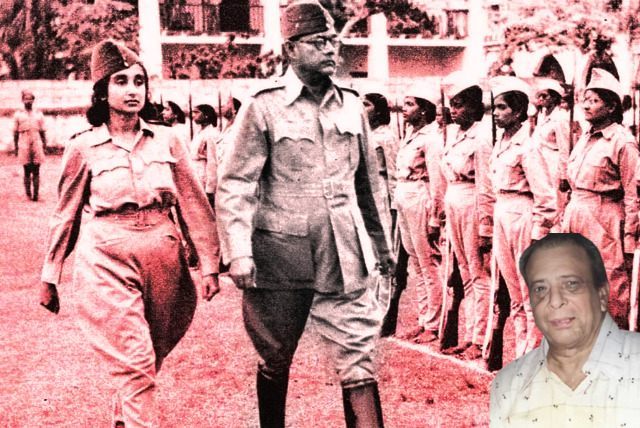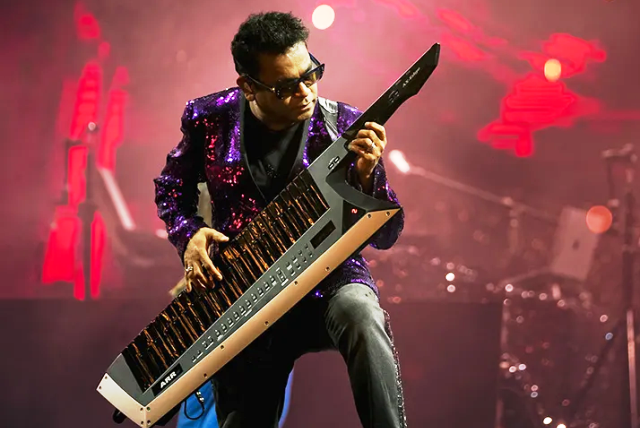
Is the UN Facing a Crisis of Confidence?
At the United Nations Civil Society Conference in Nairobi, Kenya, the United Nation Secretary General’s speech was downbeat and critical of both the state of the world and the restrictive abilities of the United Nations. The Secretary General (SG) is putting hope on the youth to improve the world. But how can they make it any better if the institutions that are meant to deal with the problems and the experts with experience have no new thinking or not willing to incorporate new ideas?
The speech is revealing of the current impotency of the United Nations in what the SG Guterres said is ‘entangled in crises’. In his speech he attributed the current paralysis partly to, ‘Many international institutions mirror the world in which they were founded almost eighty years ago’. On the face of it, this sounds like great intuition. However the reflection is followed with, ‘Developing countries are underrepresented and under-served. And civil society is often marginalised’. Guterres is looking towards the youth.
It has been a common complaint from some emerging giants such as India, that the Security Council is not a representative institution. Others have complained that the Security Council is too powerful.
In the United Nations system there are two main bodies with power of decision. The General Assembly is the big parliament which gives representation to every State recognised by the United Nations collective. Then there is the Security Council, which is responsible for security and peace. From the start It has had five permanent members each of whom has a veto to vote down any decision if it does not suit them. They are United States, Great Britain, France, China and Russia.
There are other ten elected members in the Security Council who come from different regions of the world. Each year, upon recommendation by the Security Council, the General Assembly elects five members who sit on the Security Council for a period of two years. They all have one vote each, but any of the five permanent members can veto decisions.
Countries like India, Brazil, Japan, South Africa and Germany among others have been complaining that the five veto holding members do not represent the real distribution of power and influence in the world.
The Secretary General comment on the Security Council is noteworthy, ‘The United Nations Security Council is paralysed by geopolitical divides, incapable of acting together on clear violations of international law’.
It is no secret that Russia, China and United States usually veto decisions if they don’t serve their international or domestic policy. The General Assembly has no influence on this. However it is a distraction to continue to blame this system for the woes of the world. Putting India or Brazil in the permanent members isn’t going to make the process any better. In fact if there are three main competing interests now blocking consensus, there will be at least five or more if Security Council is expanded. The problems of the United Nations are much deeper.
ALSO READ: ‘Geopolitical Realities Not Reflected In UNSC’
The Secretary General notes, ‘Sustainable Development is under threat. Conflicts are erupting with alarming frequency and horrifying results. Inequality and poverty are tearing societies apart. Many developing countries are being suffocated by debt and a cost-of-living crises. Climate chaos is knocking communities off their feet-with the poorest suffering the most.
The Secretary General also felt that new technologies, particularly artificial intelligence, are creating new threats while fuelling old bigotries and divisions.
Guterres said boldly that ‘These crises demand international solutions. But the international system is not up to the task’. Even the financial system is outdated, dysfunctional and unjust with debt relief mechanisms totally inadequate, leaving countries marooned in a sea of exorbitant interest payments and debt service costs, according to the Secretary General.
But he is the head, the motivational leader or coordinator of all these institutions. Its difficult to understand who else Guterres thinks should be steering them towards solutions.
Is it the five barons sitting with vetoes in the Security Council who are holding back solutions? Is it the General Assembly that won’t come up with any new ideas? Will adding permanent members to the veto body really solve issues? Will more democracy in the United Nations lead to nirvana?
There is no real gaming of these theories. They are in the realm of speculation. Increasing the deck chairs or the way power is made more democratic won’t stop financial institutions wanting their pound of flesh or authoritarian and democratic institutions violating human rights or ignite wars around the world.
Guterres knows he is sitting at the top of an institution that is dysfunction and has said so himself. He knows that it was constructed for another world about 80 years ago. Bringing in youth and civil society voices will not solve the deep seated problems at the United Nations.
Many of the conflicts in the world today are based on civilisations asserting themselves after a long period of occidental hegemony and ordering of the world systems. That is one area the United Nations and its staff refrain from looking at because it challenges the worldview the whole edifice is built on.
What was different eighty years ago wasn’t just that India and Brazil were not emerging powers. But the world, its political institutions and the State systems were all constructed on the ideas of one civilisation. It was built on the utopian vision of liberal secularism.
The reality on the ground is different. In India, people are less bothered about diversity, secularism and democracy. They have been backing BJP and Modi because they give them a cultural identity.
The Islamic world has largely ignored the UN’s most cherished goals of a democratic world everywhere and equality for all including gender, gender variables and ethnicities, beliefs etc.
China has shown no inclination to become a State in the image of France or USA. It continues to use the words, human rights with Chinese characteristics. Democracy with Chinese characteristics etc, whatever that means.
The fact is the reality on the ground and the utopia the UN are working in a dysfunctional arrangement. The Secretary General should consider setting up a commission to look at how the diversity of the world really functions rather than how the UN would like it to work. It is coexistence of plurality rather than an obsession with universalism that may be the answer to solving many of the problems. The UN needs rebooting, not more administrative outreaches.
For more details visit us: https://lokmarg.com/



